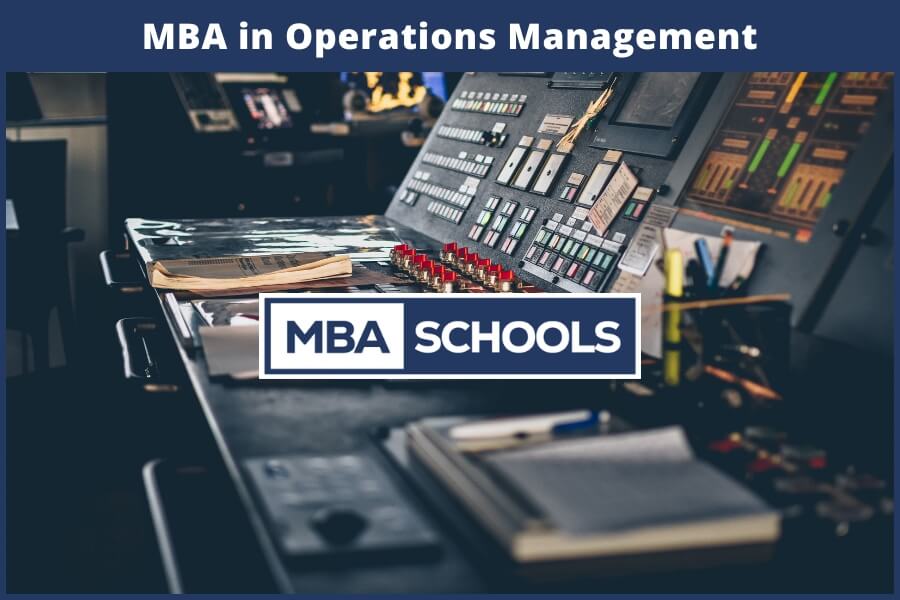MBA in Operations Management
An MBA in Operations Management is an excellent choice for professionals who want to optimize business processes, improve efficiency, and lead supply chain and logistics operations. This specialization focuses on process improvement, supply chain management, quality control, and data-driven decision-making, equipping graduates with the skills to manage complex operational challenges in manufacturing, healthcare, technology, and retail.
According to the U.S. Bureau of Labor Statistics (BLS), operations managers earn a median salary of $98,100. Due to globalization and evolving business needs, demand for logistics and supply chain professionals is expected to grow 28% from 2021 to 2031 ( BLS). Additionally, a study by Deloitte found that 75% of companies cite operations management as a key driver of business success ( Deloitte).
An Operations Management MBA specialization is ideal for professionals looking to advance in supply chain optimization, production planning, logistics, and process improvement roles.

Table of Contents
What is an Online MBA in Operations Management?
An Online MBA in Operations Management provides flexibility for working professionals seeking to enhance their expertise in supply chain efficiency, logistics management, and process optimization. These programs offer flexible scheduling, allowing students to apply lean management principles, automation strategies, and inventory control techniques in real-time within their current roles.
Students gain expertise in quality management, business analytics, and procurement strategies, ensuring they are well-prepared for leadership roles. Many online programs integrate real-world case studies, industry simulations, and global supply chain networking opportunities, providing a dynamic learning experience.
What Are the Admissions Requirements for an MBA in Operations Management?
Admissions requirements for an MBA in Operations Management vary by program but typically include the following:
- Bachelor’s Degree – From an accredited institution, often in business, engineering, or related fields.
- Work Experience – 2-5 years of professional experience in operations, logistics, or supply chain management is preferred.
- GMAT/GRE Scores – Some programs require standardized test scores, while others offer waivers.
- Personal Statement – Discussing career goals and why the applicant is pursuing an MBA in Operations Management.
- Letters of Recommendation – Typically from employers or academic mentors.
- Resume – Highlighting experience in process optimization, logistics, or production planning.
Is an MBA in Operations Management the Right Specialization for You?
An MBA in Operations Management specialization suits professionals who enjoy problem-solving, efficiency analysis, and logistical planning. If you are passionate about optimizing business operations, managing supply chains, and leveraging data analytics to drive efficiency, this specialization will provide the tools needed for career success.
Compared to other MBA specializations, such as Strategy or Finance, an MBA in Operations Management emphasizes real-world efficiency improvements, resource allocation, and production strategy. If you are interested in streamlining operations, reducing costs, and implementing cutting-edge supply chain solutions, this program may fit you best.
MBA in Operations Management Curriculum: What Classes Will I Take?
Most MBA in Operations Management programs take 1-2 years to complete, depending on whether students enroll full-time, part-time, or in an accelerated format.
Core Courses in an MBA in Operations Management
The curriculum for an Operations Management MBA specialization blends analytical problem-solving with supply chain leadership through courses such as:
- Supply Chain Management & Logistics
- Lean Management & Six Sigma
- Operations Strategy & Business Process Improvement
- Procurement & Global Sourcing
- Data Analytics for Operational Decision-Making
- Inventory & Warehouse Management
- Quality Control & Risk Assessment
- Advanced Manufacturing & Automation Technologies
Many programs also incorporate real-world operational projects, including process optimization simulations, industry partnerships, and case studies on global supply chains. Some students complete internships at major manufacturing, retail, or logistics firms to gain hands-on experience before graduation.
What Career Options Do I Have with an MBA in Operations Management?
An Operations Management MBA specialization prepares graduates for supply chain and logistics leadership roles. Standard job titles include:
- Operations Manager – Oversees business processes and efficiency improvements.
- Supply Chain Director – Manages logistics, procurement, and vendor relations.
- Logistics Manager – Optimizes distribution networks and supply chains.
- Production Manager – Oversees manufacturing and production planning.
- Quality Assurance Director – Ensures product and service quality meets industry standards.
Salary Expectations
Salaries for MBA in Operations Management graduates vary based on experience, industry, and location. According to BLS and Deloitte, operations professionals with an MBA typically earn:
- Operations Manager – $90,000 – $130,000
- Supply Chain Director – $110,000 – $160,000
- Logistics Manager – $95,000 – $140,000
- Production Manager – $100,000 – $150,000
- Quality Assurance Director – $105,000 – $155,000
Take the Next Step Toward a Leadership Role in Operations
An MBA in Operations Management provides the technical and managerial expertise to streamline business operations, optimize supply chains, and improve organizational efficiency. Whether you want to lead a global logistics network, manage production planning, or enhance business processes, this degree will give you the knowledge, skills, and network to achieve your career goals.
Explore top-ranked MBA in Operations Management programs today and start advancing your career.
Sources
- U.S. Bureau of Labor Statistics. (2023). Occupational Outlook Handbook: Operations and Supply Chain Management. Retrieved from https://www.bls.gov/
- Deloitte. (2023). Global Supply Chain Trends and Business Operations Report. Retrieved from https://www2.deloitte.com/